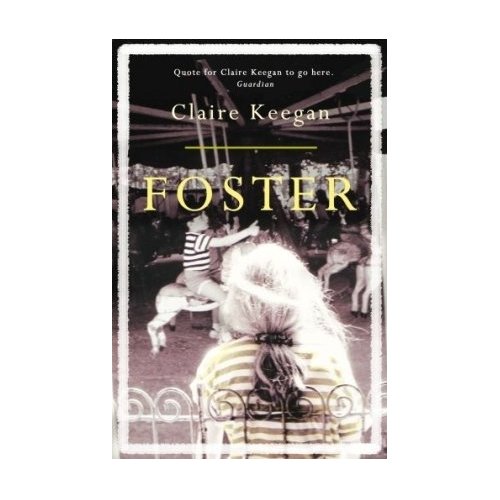 How was it? Exhilarating and exhausting, inspiring, demanding and just very occasionally a little bit depressing.
How was it? Exhilarating and exhausting, inspiring, demanding and just very occasionally a little bit depressing.
After three and a half hours on the road in the company of Mark Kermode and the BBC philharmonic orchestra celebrating 50 years of James Bond, I finally arrived in Kilkenny. Somehow, however, I’d missed the email which told us that Clare Keegan would be doing a reading, so my copies of her brilliant short story collections “Antartica” and “Walk the Blue Fields” were left sitting on my bookshelves. Oh well, I still got to meet her and it was fascinating to hear her speak about the craft of writing so honestly and so eloquently. She spoke of the intensity required of the short story but also of the quiet observation of reluctant narrators which needs to happen before you’ll create anything worth reading. And she spoke also of the process of writing and re-writing, of revisiting the characters over and over again until what they are doing rings true and reveals who they really are. But quietly. Somehow you get to know them in silence not noise and I wondered how often our students do this? Visit and revisit draft after draft until they have crafted something to truly be proud of. Certainly they never get this opportunity in an exam which gives them only 1 hr 20 minutes. That’s why I generally recommend that students avoid the short story, not in life, but in the exams. In the real world I run a short story competition every year because I want my students to know the pleasure of crafting a beautiful piece of writing and of seeing their work in print but the brutal demands of writing a really good short story in such a short timeframe in an exam is something I wouldn’t wish on my worst enemy.
Meanwhile I’ve bagged myself a signed copy of Foster that I’m dying to dive into but chance would be a fine thing! I often hear people commenting how family-friendly teaching is as a job, but right now it doesn’t feel like that. Last Wednesday I didn’t see my daughter at all as I was away with students at our first Concern debate; Thurday I was home late after work and there in body but not in spirit for the rest of the evening as I was distracted preparing for the conference; Friday I was in Kilkenny and when I got back late Saturday night the house was quiet and everyone was in bed. Today Sunday I’ll be at the school musical dress rehearsal and I’ll be at there again for matineees and evening shows Monday, Tuesday and Wednesday. These past few days have been so crazy I still haven’t met my beautiful little niece Clíona (born last Wednesday) and it’s hard not to feel guilty and overwhelmed. I’ve also got a stack of personal essays from my leaving certs that need correcting but right now it just feels like somethings gotta give. Still, mid-term is fast approaching so I’ll get some balance back then. And maybe even get a chance to actually read “Foster”…
Saturday began with our keynote speaker’s observation that ‘success for English teachers is not defined by A1s but how many future readers we inspire’. So far, so obvious. Sadly, the rest of her talk was a rambling rant at everyone in the room, accusing us of teaching to the exam, of not encouraging students to read widely, criticising us for the selection of texts on the list of prescribed material. She generally seemed convinced that all English teachers are complete and utter failures. She spoke of her experience in school of being given out to for reading something that wasn’t on the course and for only the second time in half an hour I could connect with something she was saying – I too was given out to at school for reading instead of ‘studying’ and it stuck with me. That’s one of the reasons I became a teacher. That’s the reason why my TY’s are in the throes of setting up their own book club, and the first years are taking part in the MS readathon and the entire staff are on board with the drop and read initiative. I think what made me saddest of all was the way she sucked the energy and enthusiasm out of the room and patronised a wonderful group of people who passionately love what they do enough to have gotten up at 5 and 6 am to drive to a conference for which there will be no recognition (the Dept tell us to do CPD but refuse to recognise it when calculating Croke Park hours). She spoke of inspiring people but if that was her version of inspiration, in my humble opinion, she’s got a lot to learn.
Thankfully, things picked up once we got stuck into the workshops. I was presenting on some practical ways that teachers can integrate more ICT into their teaching (you can read some of those tips here) and once I got into the swing of it my nerves melted away. I pointed to the confluence of factors which so profoundly accererated my journey to integrating technology in my classroom- teaching in a school with zero discipline problems; grappling with severe laryngitis; desperately needing to find a way to communicate with my pupils without using my voice; having an IT technician on hand 24 hours a day every time I ran into difficulties (my husband John). In the end we decided that this is the vital missing factor in schools and the motto for my talk became “everyone needs a John!”. Meanwhile, thanks to the wonderful John I’ve completed chapter one of the paper one book I’ve been threatening to write for the past year – if you want to download the pdf and photocopy any of it for use in class click here: (Bible w cover)
Just before lunch, Colette Kearney offered incredibly wise words on Literacy and Learning Support and Tony Tracey gave a fascinating and in-depth analysis of Blade Runner. I caught some of both once I’d finished answering questions and queries and bouncing ideas off other teachers. After both sessions and at lunch I had great inspiring conversations with some really vibrant and enthusiastic English teachers and I’ve made some great new connections, something that is so vital in teaching, a profession that can seem so lonely at times. I was only sad that presenting meant that I missed the wonderful workshops by Fiona Kirwin, Delmot Bolger (really sad about this one! I have a thing for writers…), Frances Rocks and Edward Denniston. Then we launched into our AGM with a heated and passionate discussion of the new Junior Cert, focusing most particularly on the abuses of the system which can occur when teachers grade their own pupils. The general consensus seemed to be that maintaining any kind of national standard will be impossible; that assessing our own pupils will profoundly damage our relationship with them (we want to be advocates not judge and jury); that the lack of information about who will design the new English curriculum and what it might look like is profoundly worrying and frustrating; and yet there remain many things to be excited about – for me, I’m particularly enthused about the short courses in Digital Literacy and Artistic Performance. Nonetheless, the suggestion that these changes aren’t a cost saving exercise was met with a gale of laughter.
After a second round of workshops and a drink in the bar it was back on the road again. My phone kept beeping and when I pulled over in Athlone for a McFlurry with the lovely Elaine Dobbyn I was delighted to see some of my workshop attendees already giving twitter a go. To me these connections are what give us the energy and the drive to keep going despite the obstacles and the challenges and the perception we were subjected to earlier in the day that we daily fail our pupils. For me our greatest success lies in the fact that we care passionately about doing the best job we can possibly do for our students. Everything else is silence.






